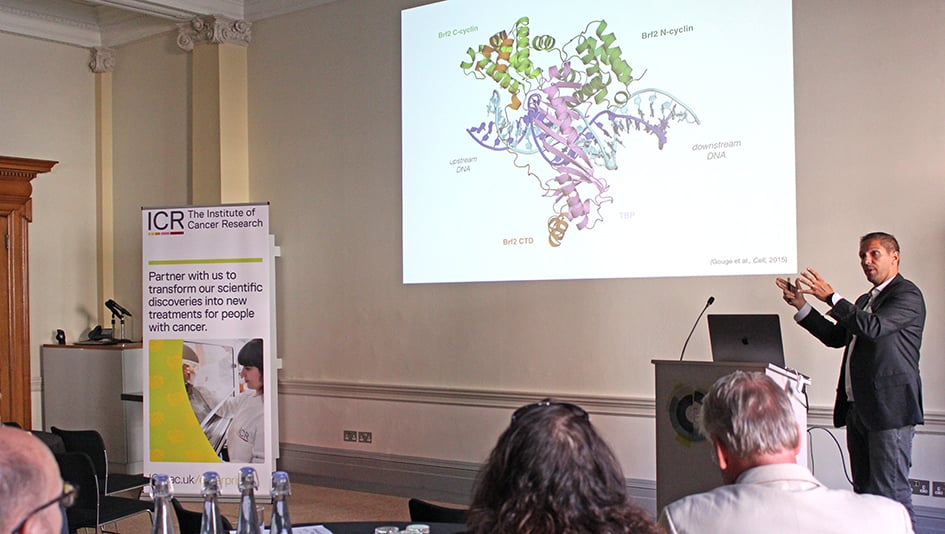
Image: Professor Alessandro Vannini presenting at the ICR Enterprise breakfast event
Our aim is to develop our research discoveries into new treatments, diagnostics or supporting technologies for cancer. We know that the best and fastest way to get our discoveries to cancer patients is by establishing fruitful and effective partnerships with industry.
Our interactions with commercial partners are the responsibility of our Enterprise Unit, led by Dr Angela Kukula. Her team fosters the interactions with industry that ensure our research leads rapidly to benefits for people with cancer.
Our principles
Our approach to our partnerships – and in particular the licensing of our intellectual property – is guided by our aim to defeat cancer. We adhere to the following principles to ensure that the way we make our IP available to companies maximises the benefits for patients:
- First and foremost, all of our commercial decisions and agreements aim to turn our research findings into patient benefit as quickly as possible.
- We take a flexible and pragmatic approach to our partnerships, using the route most likely to take research findings rapidly to the clinic. In some cases we work with a company, granting exclusive licences only where necessary, while in others we will make our results available for the benefit of the wider community.
- Generally, we will license our intellectual property non-exclusively, rather than exclusively, on the basis that non-exclusive licenses increase competition and speed the passage of our discoveries to the clinic. We grant exclusive licenses only where we judge this to be the best way of ensuring a technology is developed.
- Although we earn more than any other UK higher education institution from our invention income, we are guided by patient need, not profit.
- We choose industry partners based on whether we believe they have the skills and resources to collaborate with us in a complimentary way to bring a product to market. In some circumstances, that can mean deliberately restricting the amount of income we make to ensure that a treatment becomes available at an affordable price.
- We actively avoid commercial agreements that, while potentially lucrative, could slow down the translation of discoveries into new cancer drugs or other treatments.
- Academic freedom is a fundamental part of our philosophy. We always insist on the right to publish – which may be following a delay to seek IP protection – and to continue our research.
- Our leading role in discovering new treatments affords us a voice in areas of national and global policy that relate to pharmaceutical and medical industries – for instance in drug pricing, regulatory approval of new treatments, innovation and university-business collaboration. We believe it is important that we use our voice to improve the landscape for the discovery and development of innovative new treatments, with the aim of benefiting cancer patients.
- In the end, we believe that what matters most is patient benefit, ensuring patients get access to treatments quickly and at prices that health systems can afford.